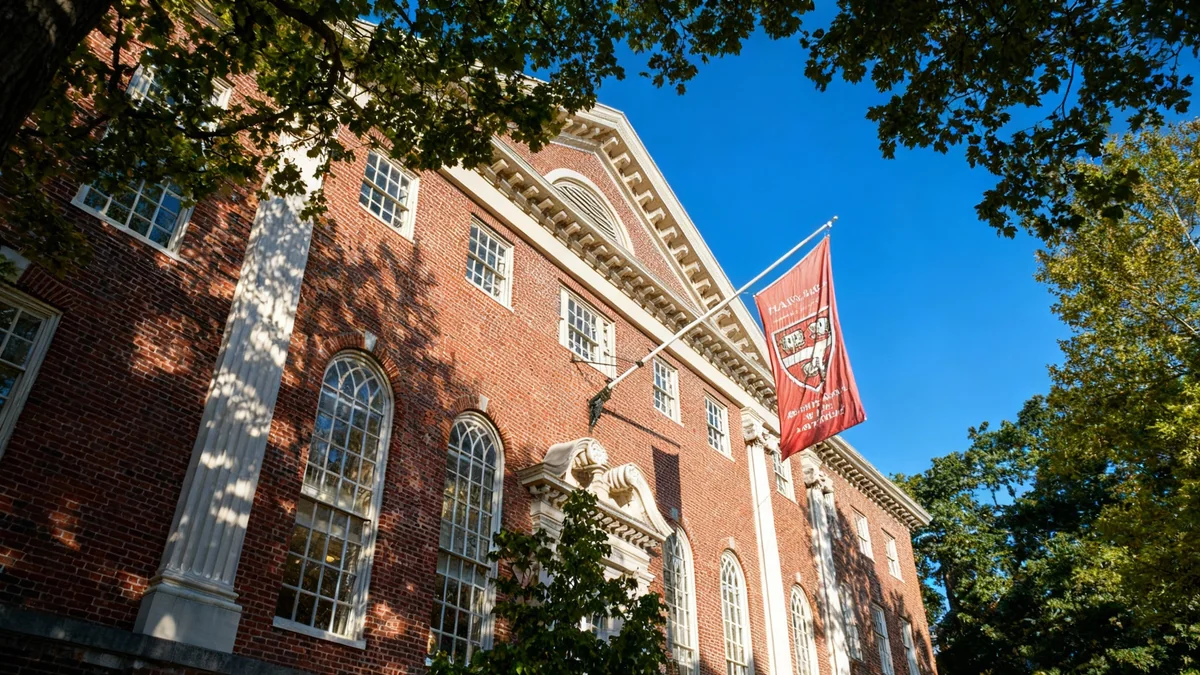Harvard University has launched a formal investigation into the relationship between its former president, Larry Summers, and the late convicted sex offender Jeffrey Epstein. The inquiry follows the recent public release of thousands of pages of documents, including emails that reveal years of personal communication between the two men.
The university confirmed its review will also examine the roles of nearly a dozen other current and former Harvard affiliates implicated in the newly surfaced records. This development has prompted Summers to withdraw from public engagements, though he will continue his teaching duties at the university.
Key Takeaways
- Harvard University is conducting a review of former president Larry Summers' ties to Jeffrey Epstein.
- The investigation was triggered by newly released emails showing extensive correspondence between 2013 and 2019.
- Larry Summers has issued a public apology and will pause public engagements but continue teaching.
- A previous university report found Epstein donated $9.1 million to Harvard before his 2008 conviction.
University Initiates Formal Review
Harvard University officials have confirmed they are undertaking a comprehensive review of information related to individuals at the institution who were named in the recently released Jeffrey Epstein documents. The primary focus of the investigation is Larry Summers, who served as the university's president from 2001 to 2006.
"The University is conducting a review of information concerning individuals at Harvard included in the newly released Jeffrey Epstein documents to evaluate what actions may be warranted," spokesperson Jonathan L. Swain stated. This review aims to understand the full extent of the connections and determine the appropriate institutional response.
The investigation extends beyond Summers, encompassing his wife, a professor emerita at Harvard, and several other affiliates whose names appeared in the extensive document trove released by the House Oversight Committee.
Summers Steps Back Amid Scrutiny
In response to the revelations, Larry Summers announced he would be stepping away from his public-facing roles. However, he will remain in his position as the Charles W. Eliot University Professor at Harvard.
"I am deeply ashamed of my actions and recognize the pain they have caused. I take full responsibility for my misguided decision to continue communicating with Mr. Epstein."
The emails in question, which date from at least 2013 to 2019, show a continuing relationship long after Epstein's 2008 conviction for soliciting a minor for prostitution. The correspondence reportedly includes Summers making sexist comments and seeking personal advice from Epstein.
A History of Controversy and Influence
Larry Summers has had a long and influential career in both academia and government. Before and after his tenure as Harvard's president, he served as the U.S. Treasury Secretary under President Bill Clinton and as the Director of the National Economic Council for President Barack Obama. His presidency at Harvard ended amid several controversies, including comments he made suggesting innate differences between men and women in science and math.
Previous Ties and Donations
This is not the first time Harvard has had to confront its relationship with Jeffrey Epstein. A 2020 investigation, commissioned by then-President Larry Bacow, delved into the financial connections between the university and the disgraced financier.
Epstein's Financial Contributions
A 2020 report by Harvard University revealed that Jeffrey Epstein donated a total of $9.1 million to the institution between 1998 and 2008. The university confirmed that it accepted no further donations from him after his 2008 guilty plea in Florida.
That earlier review concluded that while the donations were significant, they were directed toward specific research projects and did not appear to influence university admissions or policies. The current investigation, however, focuses more on the personal relationships and ethical judgments of individuals associated with Harvard rather than just the financial ties.
Broader Implications and Further Disclosures
The situation at Harvard is part of a much larger national story. The release of documents has shed light on Epstein's extensive network, which included prominent figures from finance, politics, and academia.
In a related development, the U.S. Congress has taken steps to ensure greater transparency. The Senate unanimously passed a House-backed bill that compels the Department of Justice to release all of its investigative files on Jeffrey Epstein within 30 days. This measure is expected to be signed into law, potentially bringing even more information to light.
For Harvard, the new investigation represents a critical moment to address questions of ethics, accountability, and the judgment of its leaders, both past and present. The university community and the public will be watching closely to see what actions, if any, result from the review.





